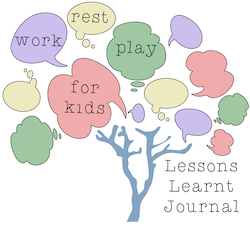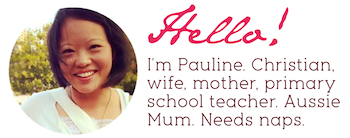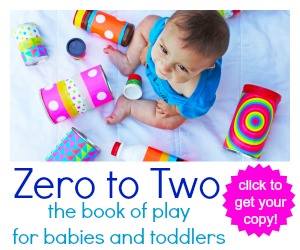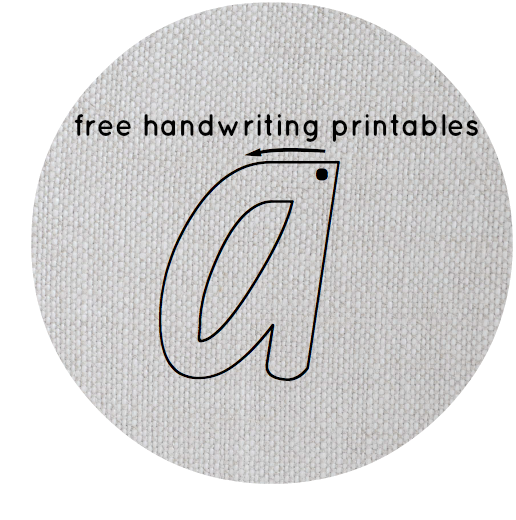Welcome to our writing through structured play series. I’m thrilled to share children’s activities where children can learn with play, because #playmatters.
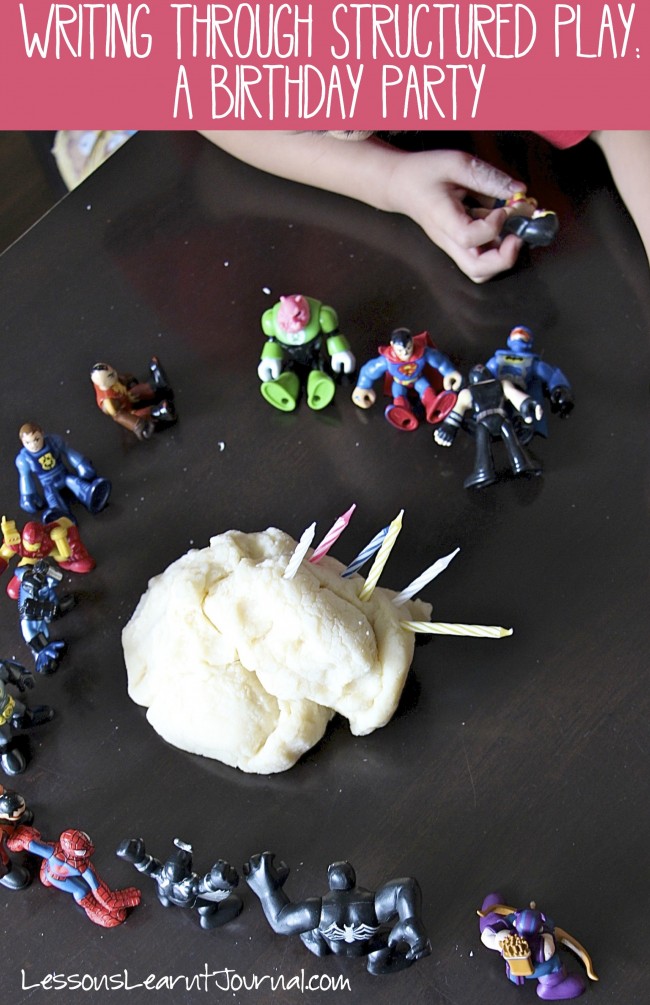
My kids are nuts about birthday parties. It doesn’t matter if the birthday party is a real event or a play event, it’s always met with a smile. I am often able to bring tantrums to a halt with the mere suggestion of having a (pretend) birthday party. Tears stop as we gather friends around. There’s the busy scuffle as we sort out the party food. There’s always cake, of course, but not before we all sing the “Happy Birthday” song.
There are as many definitions of play as there are people. I most definitely believe in the importance of free play. However, I also believe that structured play has its’ place.
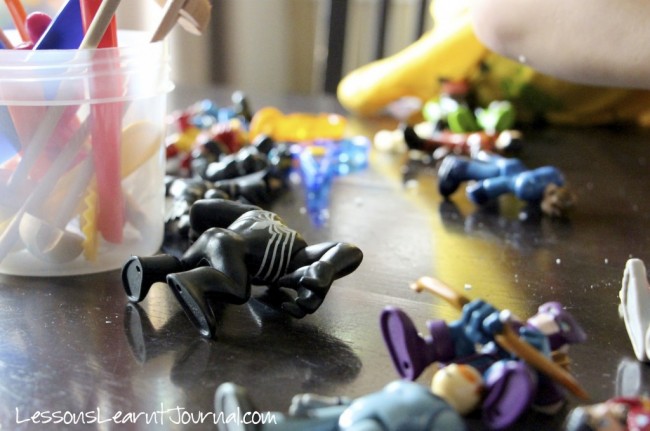
In this series, writing through structured play, you will find structured play scenarios with various literacy opportunities. Literacy is often confined to reading and writing.
However, literacy includes talking, listening, visual literacies (eg viewing and drawing), and critical thinking.
Structured play gives an excellent opportunity to build on a child’s previous experiences. Today, we’re all about birthday parties. Creating structured play of a birthday party provides opportunities for a number of literacy events. This may include:
- Decisions about the party: lists of we need / plan of layout
- Invitations: letters/emails/phone/video invitations.
- Getting help for the party: letters / emails / phone invitations for help from friends and family.
- Cooking for the party: recipes/information about allergies of guests/shopping lists for food
- Shopping for party supplies: searching for suppliers/shopping lists for supplies
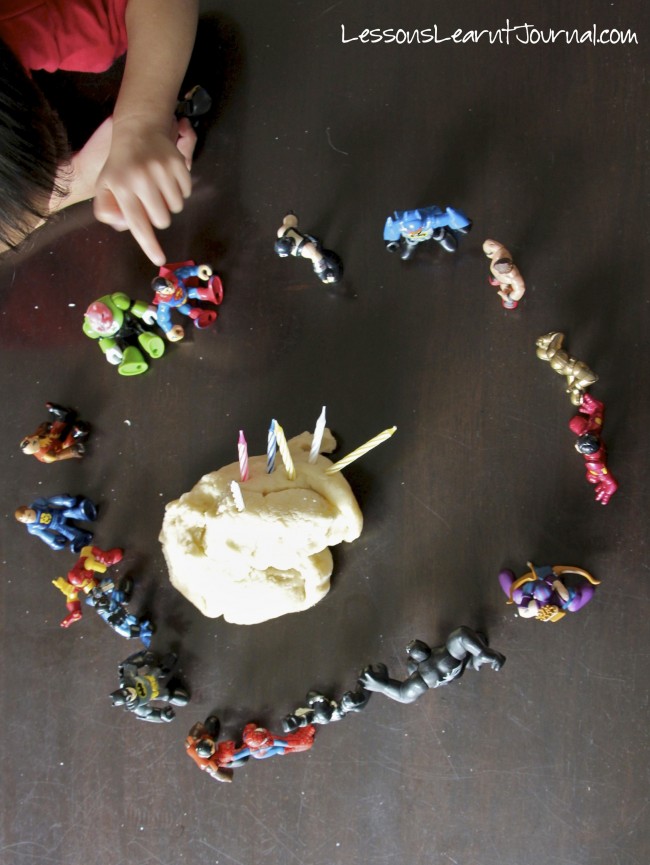
Writing through structured play, e.g. a birthday party, gives children a real purpose for writing and provides a readily understood context for the introduction of new text forms. Scaffolding your child through the literacy events of structured play may include:
- Modelling a text
- Jointly constructing a text
- Working alongside children who are writing independently
- Providing a framework that structured the content and format of the text
- Drafting, editing and re-writing, depending on purpose and audience.
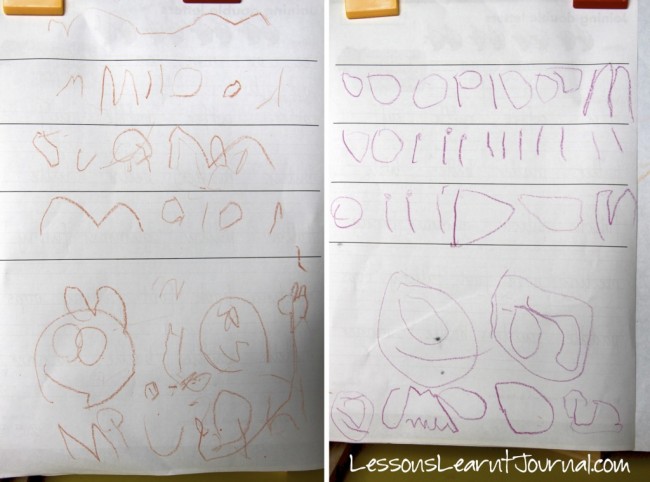
A pretest: N & M (4y.o.) write birthday invitations.They displayed an understanding of some print conventions i.e. writing from left to right; starting from to top of the page and working their way down as well as some letter shapes.
Structured play offers many learning opportunities. Follow a child’s lead. Use discussion to help them question taken for granted ways of thinking. Help them think beyond themselves. Spend time playing with children and getting down to their level, because #playmatters.
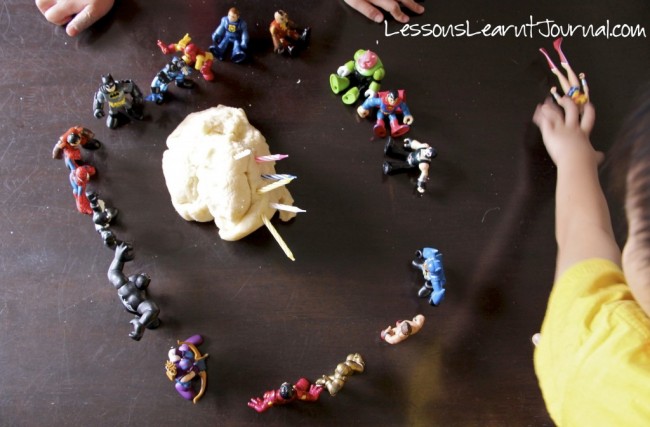
If you enjoyed this post, please consider leaving a comment; I’d love to hear from you.
If you are new here, you might like to subscribe to our RSS feed or receive updates direct to your email. We have many fun ideas to share.

